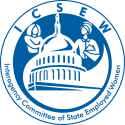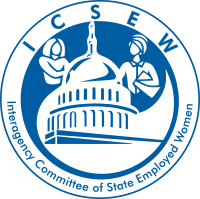Women's Equality Day Resources
by Rachel Friederich, ICSEW Communications Chair
Today is Women’s Equality Day. It recognizes the date 100 years ago when Congress ratified the 19th amendment, granting women the right to vote. Like many organizations, we wanted to partake in an in-person celebration. COVID-19 postponed or cancelled many planned events throughout the state.
In lieu of a face-to-face celebration, we’ve put together a list of websites and resources available about Women’s Equality Day and voting.
We also invite you to view the video of our May 2020 virtual meeting, featuring Secretary of State Kim Wyman’s and her presentation on the history of women’s suffrage in Washington state. The video can be viewed in our archived videos section on the ICSEW Facebook page. A copy of the PowerPoint can be viewed here.
National
2020 Women’s Vote Centennial Initiative: This interactive website has quizzes where you can test your suffrage knowledge, take a look at state and local suffrage projects, view video of suffrage performers, view a suffrage book list and more.
National Women’s History Alliance: Their website has a sample proclamation for Women’s Equality Day, ideas for celebrating Women’s Equality Day, an online exhibit, sharable graphics and historical information and resources.
Votesmart.org: Track your legislators. A searchable database on their biographies, issue positions, voting records, public statements, ratings and their funders.
State
Washington State Historical Society: Free virtual exhibits, photo galleries and curricula about women’s suffrage in Washington state. Also has a blog featuring 57 biographical sketches of Washington suffragists.
Office of the Secretary of State: Register to vote, current election information, see who has filed to run for office, learn about vote by mail and more.
History of suffrage for women in BIPOC Communities
The ICSEW recognizes that although the constitution granted women the right to vote, there were laws and practices throughout U.S. history that disenfranchised women BIPOC (black, indigenous and people of color) communities. Many who were part of these communities were prevented from voting and could not do so until years later.
The following article features a timeline of historical events and who actually got to vote when.
Who Got to Vote When?
https://interactive.aljazeera.com/aje/2016/us-elections-2016-who-can-vote/index.html



